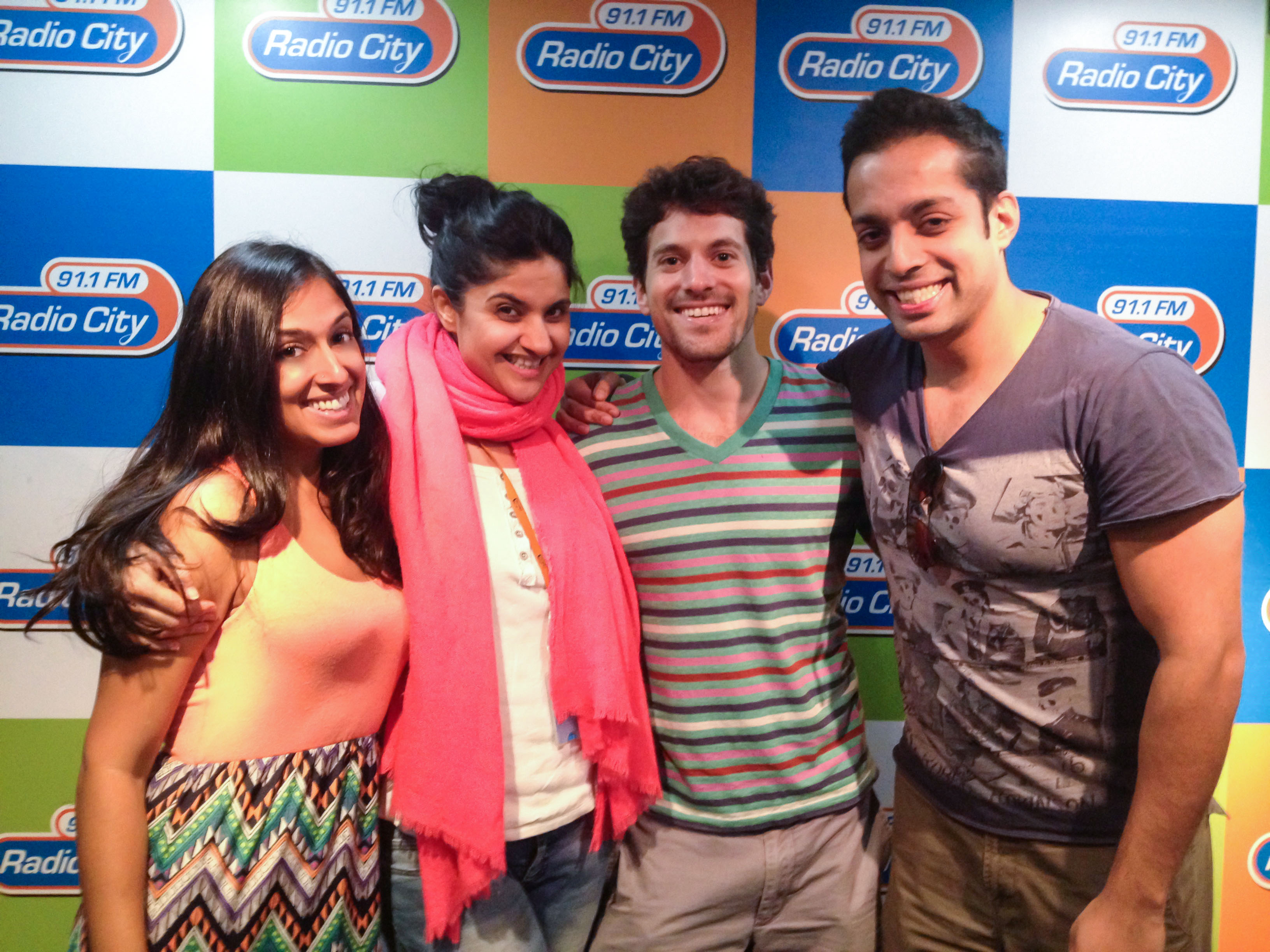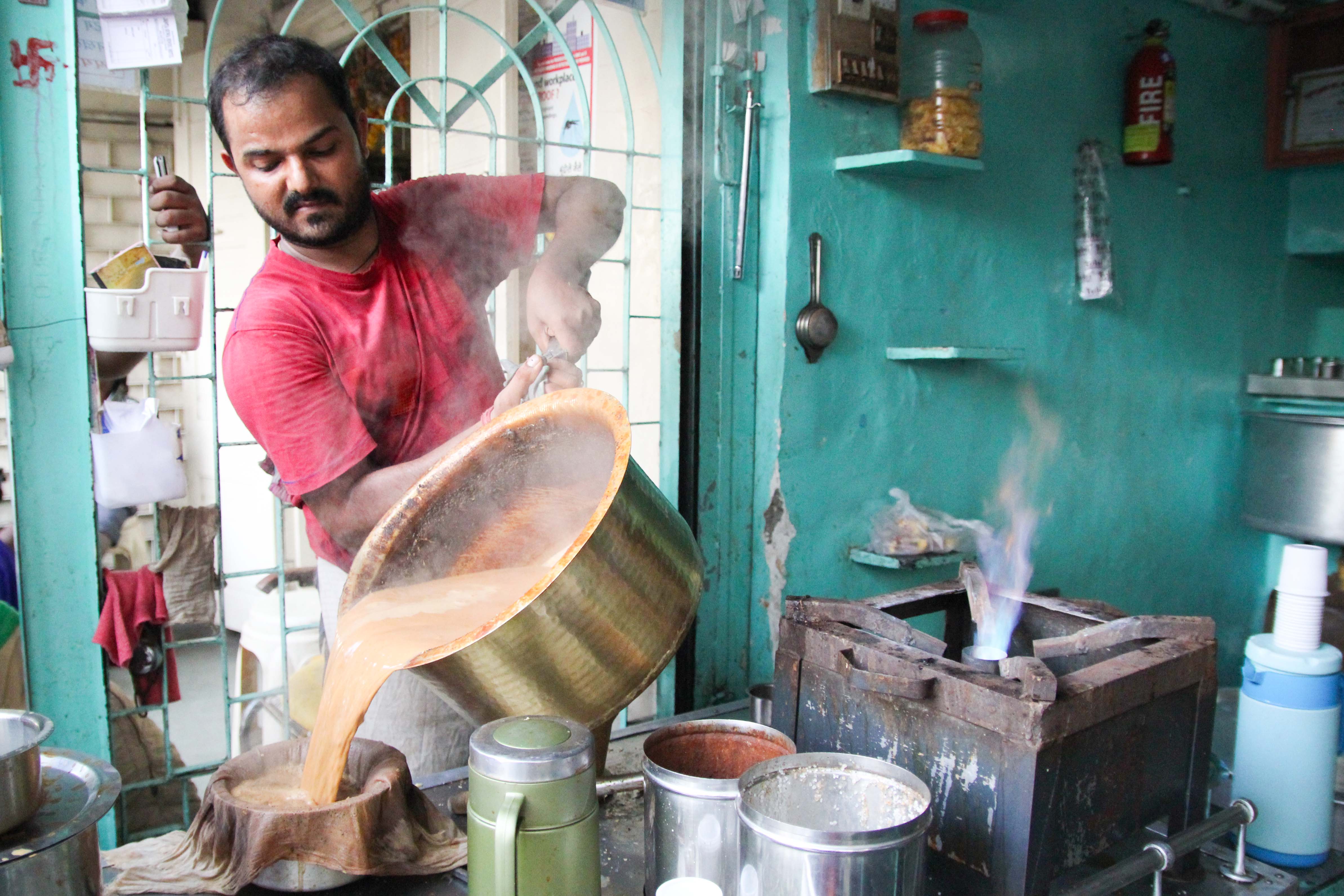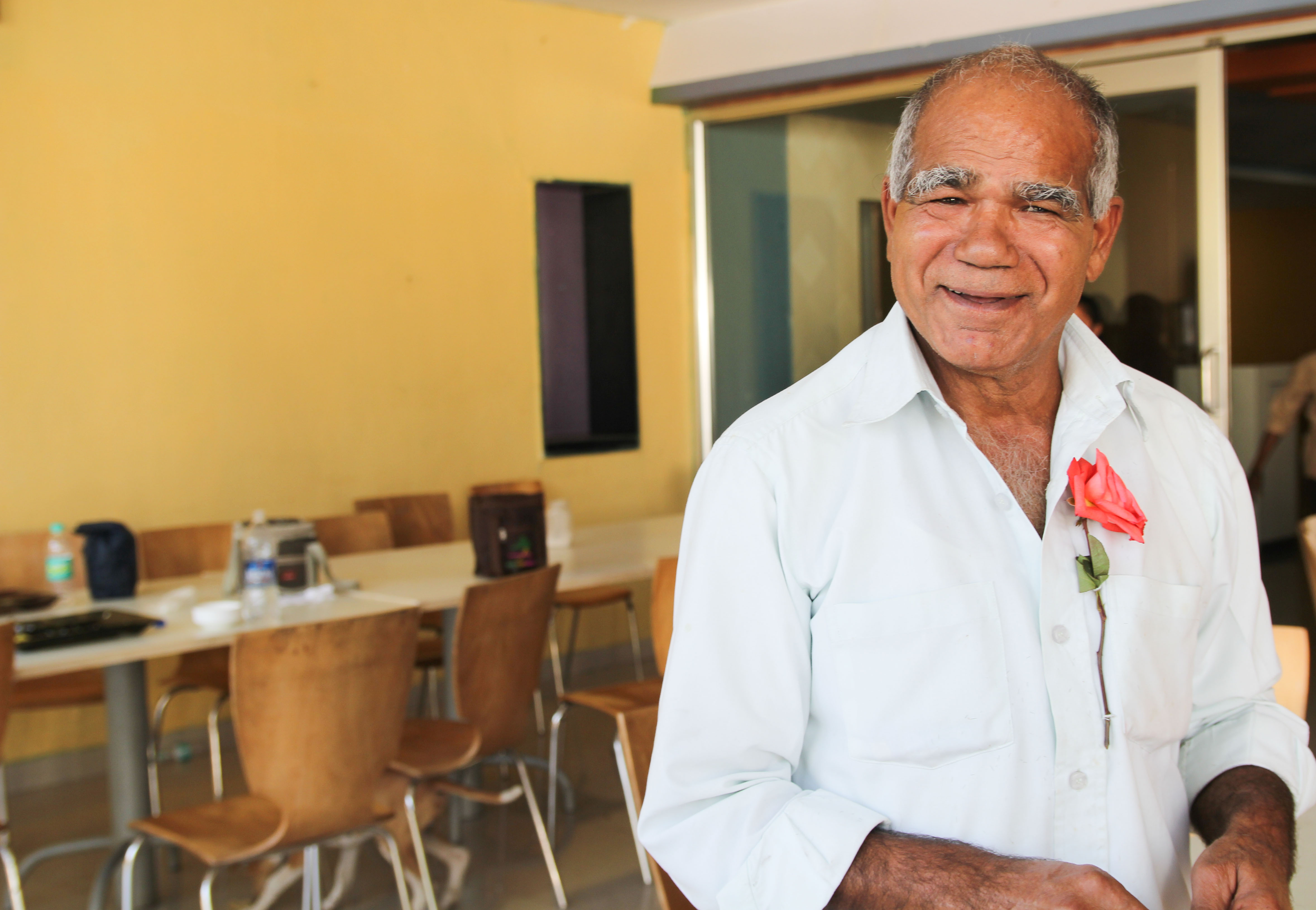“Chai! Chai! Chai! Chai! Aap aksar sunti ho gayi local train mein ya apni gali zaroor agar koi bechta hoga. Toh lekin Radio City 91.1 par aaj do khaas mehman hamare saath…”
(Chai! Chai! Chai! Chai! You’ll often hear this from someone on the local train or on your street. But today on Radio City 91.1. we have two special guests…)
So began our Hindi radio debut on one of Mumbai’s highest rated morning talk shows, Kasa Kai Mumbai on Radio City 91.1 FM. Just as millions in the Maximum City were drinking their first cup of the day or sitting stuck in rush hour traffic, we chatted with hosts and Salil Acharya and Archana Pania about Bollywood and where to get the best cup of chai in Mumbai.
Listen to the full interview here:
The spicy masala chai served in the Radio City studio was just what we needed to get our brains into Hindi mode. (The hosts had warned us their audience gets turned off by even a few words in English and the studio’s walls are plastered with papers reminding radio jockeys: “WATCH LANGUAGE. HINDI.”)
After commenting on our favorite film of the season, Ram-Leela, we gave a shout out to two of our favorite Mumbai chai wallahs: Santosh and Rajendra.
Santosh, Pandurang Budhkar Marg outside Kamala Mills back entrance, Lower Parel
Santosh now runs Janta Seva Hindu Hotel, the tea stall where he has been working for the past 15 years since he was a boy. We were tipped off to Santosh by Joanna Lobo, a reporter at the newspaper Daily News & Analysis, or DNA, when she was writing a piece on our chai project.
“Most of the DNA staff would go to his stall every day,” she said, recalling how she and her colleagues would gossip about office politics over cups of Santosh’s gingery chai. DNA has since moved to a new office complex about twenty minutes away, which has imposed a change in caffeine consumption patterns – there is a Starbucks in the lobby and chai wallahs are prohibited from entering the complex. This has caused a crisis among the DNA staff.
“The whole profession of journalism revolves around people drinking chai and having smokes,” Joanna said. “[Santosh’s] chai is worth the walk, but we just don’t have time.”





